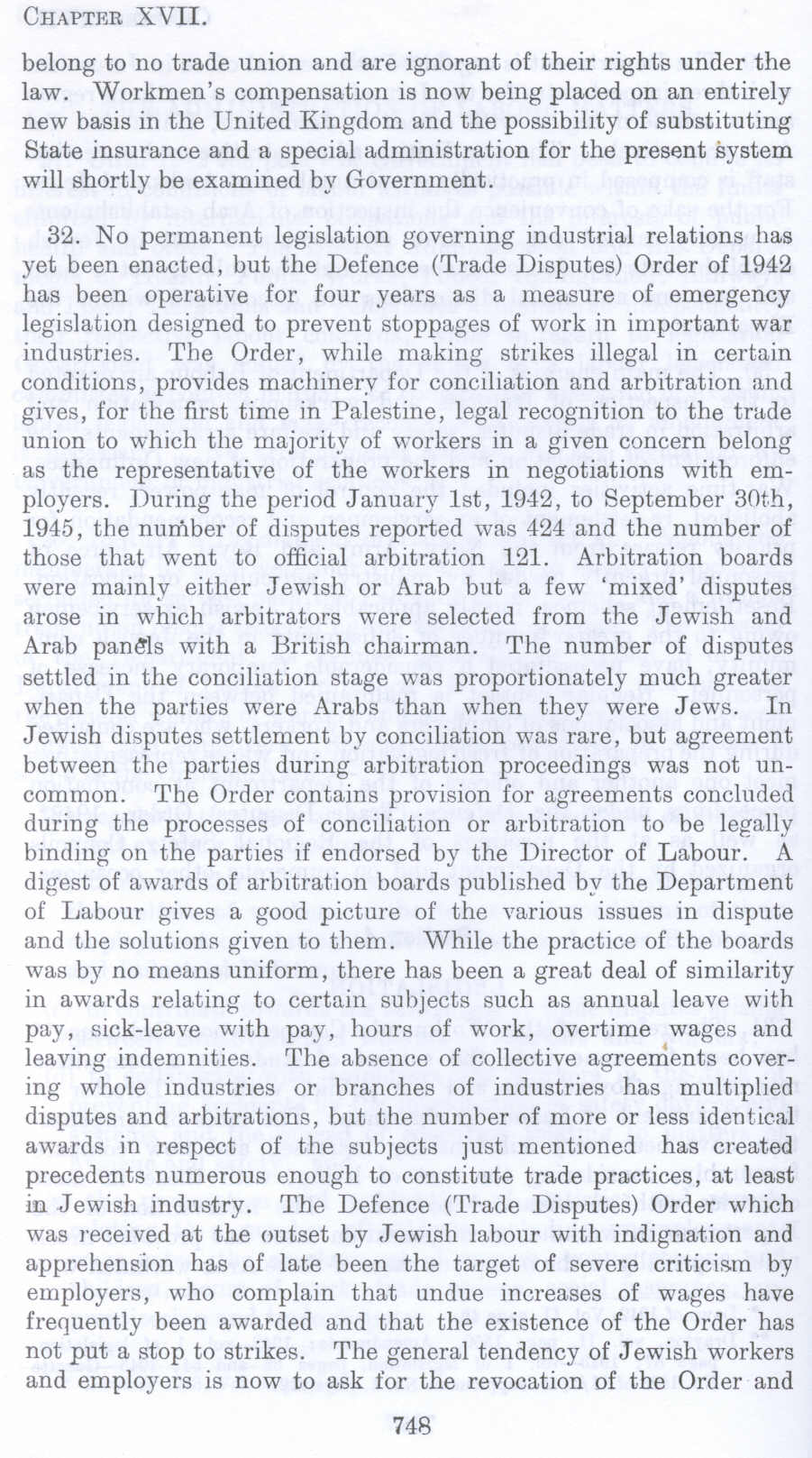| Prev | Next |  |
| Prev | Next |
| PalestineRemembered | About Us | Oral History | العربية | |
| Pictures | Zionist FAQs | Haavara | Maps | |
| Search |
| Camps |
| Districts |
| Acre |
| Baysan |
| Beersheba |
| Bethlehem |
| Gaza |
| Haifa |
| Hebron |
| Jaffa |
| Jericho |
| Jerusalem |
| Jinin |
| Nablus |
| Nazareth |
| Ramallah |
| al-Ramla |
| Safad |
| Tiberias |
| Tulkarm |
| Donate |
| Contact |
| Profile |
| Videos |
British Mandate: A Survey of Palestine: Volume II - Page 748 |
Disclaimer
The above documents, article, interviews, movies, podcasts, or stories reflects solely the research and opinions of its authors. PalestineRemembered.com makes its best effort to validate its contents.


Post Your Comment
*It should be NOTED that your email address won't be shared, and all communications between members will be routed via the website's mail server.
belong to no trade union and are ignorant of their rights under the law. Workmen's compensation is now being placed on an entirely new basis in the United Kingdom and the possibility of substituting State insurance and a special administration for the present system will shortly be examined by Government.
32. No permanent legislation governing industrial relations has yet been enacted, but the Defence (Trade Disputes) Order of 1942 has been operative for four years as a measure of emergency legislation designed to prevent stoppages of work in important war industries. The Order, while making strikes illegal in certain conditions, provides machinery for conciliation and arbitration and gives, for the first time in Palestine, legal recognition to the trade union to which the majority of workers in a given concern belong as the representative of the workers in negotiations with employers. During the period January 1st, 1942, to September 30th, 1945, the number of disputes reported was 424 and the number of those that went to official arbitration 121. Arbitration boards were mainly either Jewish or Arab but a few 'mixed' disputes arose in which arbitrators were selected from the Jewish and Arab panels with a British chairman. The number of disputes settled in the conciliation stage was proportionately much greater when the parties were Arabs than when they were Jews. In Jewish disputes settlement by conciliation was rare, but agreement between the parties during arbitration proceedings was not uncommon. The Order contains provision for agreements concluded during the processes of conciliation or arbitration to be legally binding on the parties if endorsed by the Director of Labour. A digest of awards of arbitration boards published by the Department of Labour gives a good picture of the various issues in dispute and the solutions given to them. While the practice of the boards was by no means uniform, there has been a great deal of similarity in awards relating to certain subjects such as annual leave with pay, sick-leave with pay, hours of work, overtime wages and leaving indemnities. Ths absence of collective agreements covering whole industries or branches of industries has multiplied disputes and arbitrations, but the number of more or less identical awards in respect of the subjects just mentioned has created precedents numerous enough to constitute trade practices, at least in Jewish industry. The Defence (Trade Disputes) Order which was received at the outset by Jewish labour with indignation and apprehension has of late been the target of severe criticism by employers, who complain that undue increases of wages have frequently been awarded and that the existence of the Order has not put a stop to strikes. The general tendency of Jewish workers and employers is now to ask for the revocation of the Order and
748